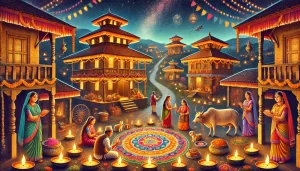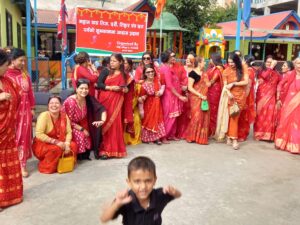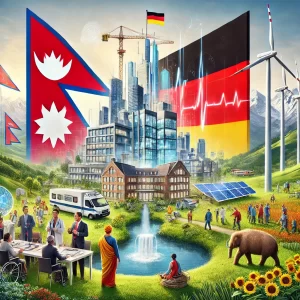Bishweshwar Prasad Koirala, commonly known as B.P. Koirala (1914–1982), was a prominent political figure in Nepal and a key figure in shaping the country’s democratic movement. Here’s an overview of his life, achievements, and contributions:
Early Life and Education
B.P. Koirala was born on September 8, 1914, in the small town of Varanasi, India, into a prominent political family of Nepali origin. His father, Krishna Prasad Koirala, was a leading figure in the Nepali Congress, a political party that played a crucial role in Nepal’s transition to democracy.
Koirala received his early education in India before pursuing higher studies in Benaras (now Varanasi) and Calcutta (now Kolkata). He developed a keen interest in literature, politics, and social justice from a young age, which would later shape his political ideology.
Political Activism
In the 1940s, B.P. Koirala became actively involved in the struggle for democracy and social reform in Nepal. He was a founding member of the Nepali Congress, which was established in 1947 with the goal of ending the autocratic Rana regime that had ruled Nepal for over a century.
Koirala played a crucial role in organizing protests, strikes, and movements against the Rana oligarchy. He was arrested multiple times for his political activities and spent several years in prison.
Leadership and Exile
After Nepal’s successful democratic revolution in 1951, B.P. Koirala emerged as one of the key leaders of the Nepali Congress. He served as the Prime Minister of Nepal three times: from 1959 to 1960, 1960 to 1963, and 1975 to 1977.
However, his tenure as Prime Minister was marked by political instability, including conflicts with the monarchy and internal divisions within the Nepali Congress. In 1960, King Mahendra, citing the need to maintain stability, dissolved the government, arrested B.P. Koirala and other political leaders, and imposed a party-less Panchayat system, effectively ending democratic rule in Nepal.
B.P. Koirala spent several years in exile in India and faced periods of imprisonment upon his return to Nepal. Despite the challenges, he continued to advocate for democracy and human rights, both within Nepal and on the international stage.
Literary Contributions
In addition to his political activities, B.P. Koirala was a prolific writer and intellectual. He wrote extensively on politics, society, and literature, and his works include novels, essays, and poems. His literary contributions played a significant role in shaping Nepali literature and intellectual discourse.
Legacy
B.P. Koirala is widely revered in Nepal as a champion of democracy and social justice. His efforts paved the way for the establishment of a democratic system in Nepal in the early 1990s, following years of authoritarian rule under the Panchayat system.
His legacy continues to inspire political activists, writers, and intellectuals in Nepal and beyond. His commitment to democratic principles, social equality, and human rights remains relevant in contemporary Nepali politics and society. B.P. Koirala is remembered as one of Nepal’s greatest leaders and thinkers, whose contributions have left an indelible mark on the country’s history and identity.





